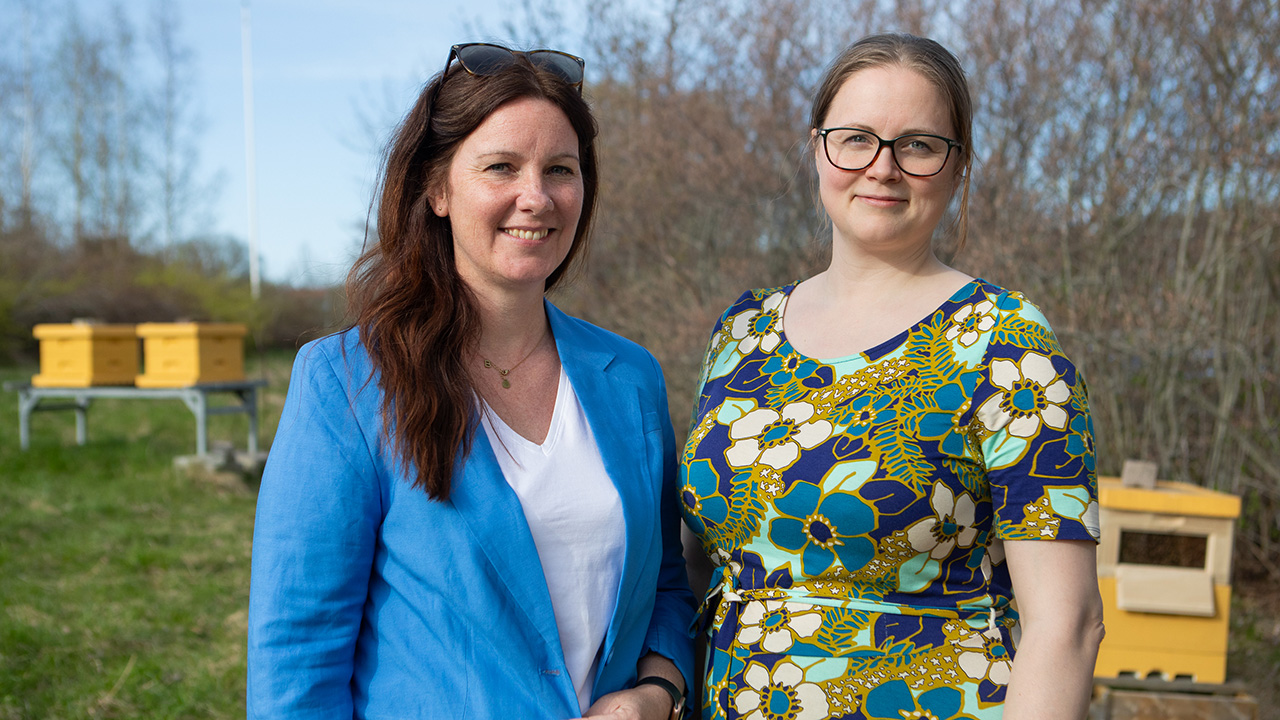
About us
The Honey Bee Research Centre was established in 2023-2024 to build and support a strong research environment for honeybee health in Sweden.
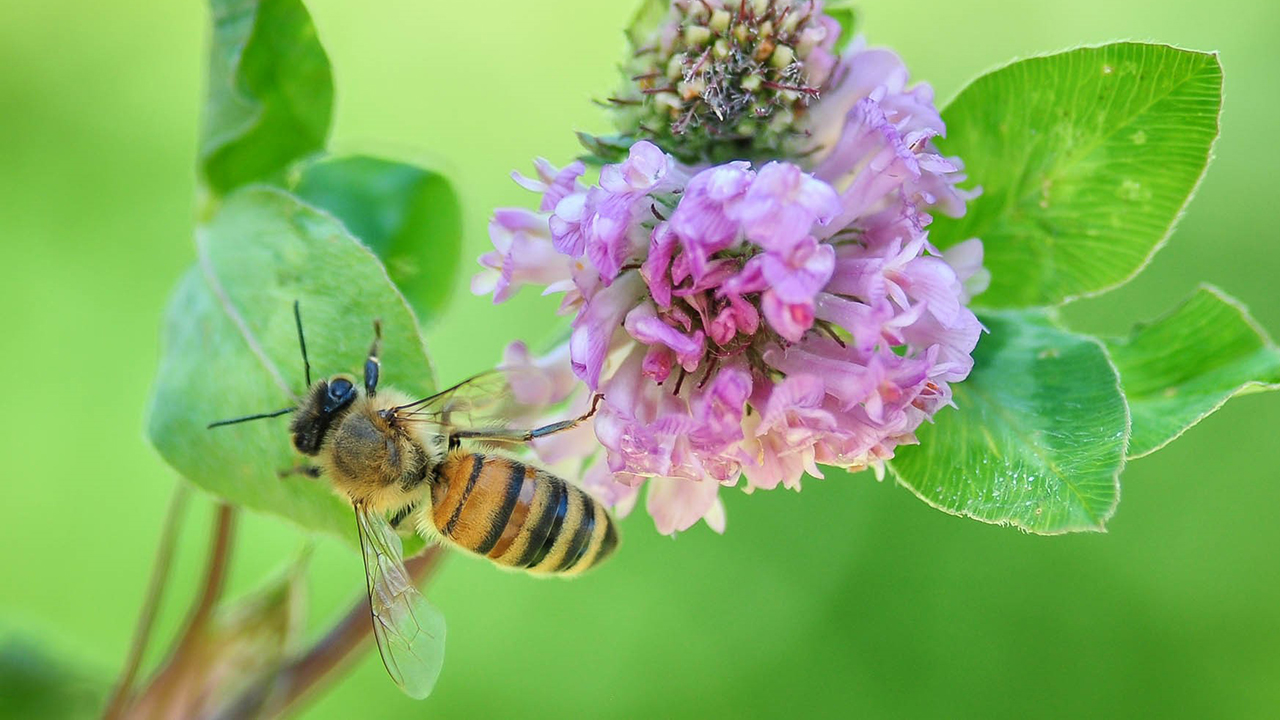
Research group
The Honey Bee Research Centre focuses on honey bee health, honey bee disease ecology and pathology.

Reference Laboratory for bee health
We analyse samples of adult bees and brood sent to us by bee inspectors from across the country.
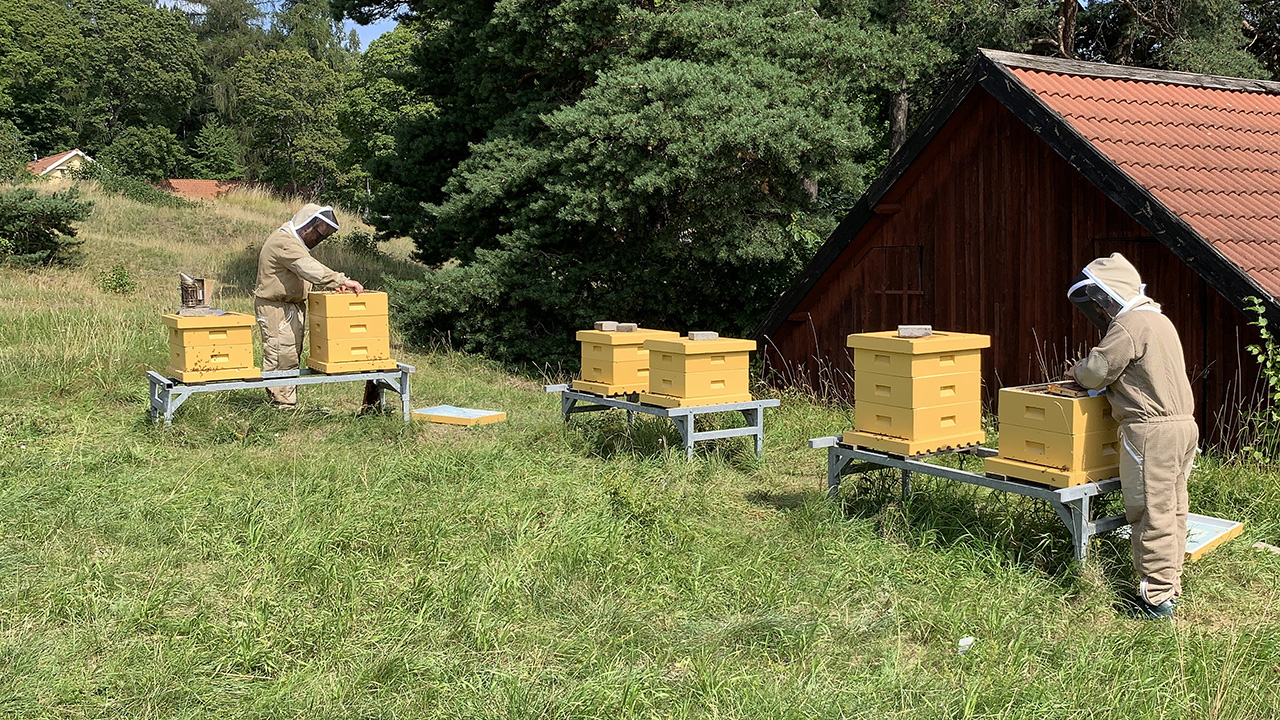
Infrastructure
We keep approximately 40 honeybee colonies in order to facilitate various activities carried out at the centre.
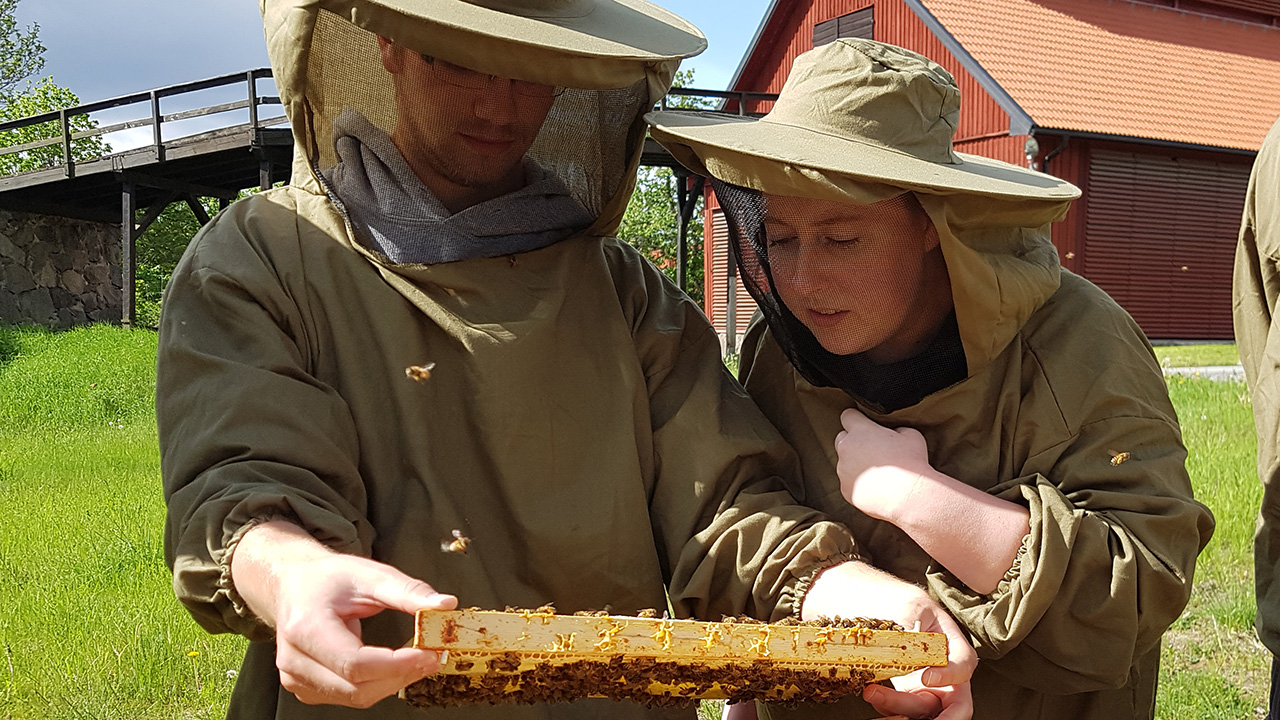
Our popular bee course
From their unique biology, ecology, and behaviors to pollination ecology, to management of honey bees for honey production, and the challenges they face with pests and diseases.
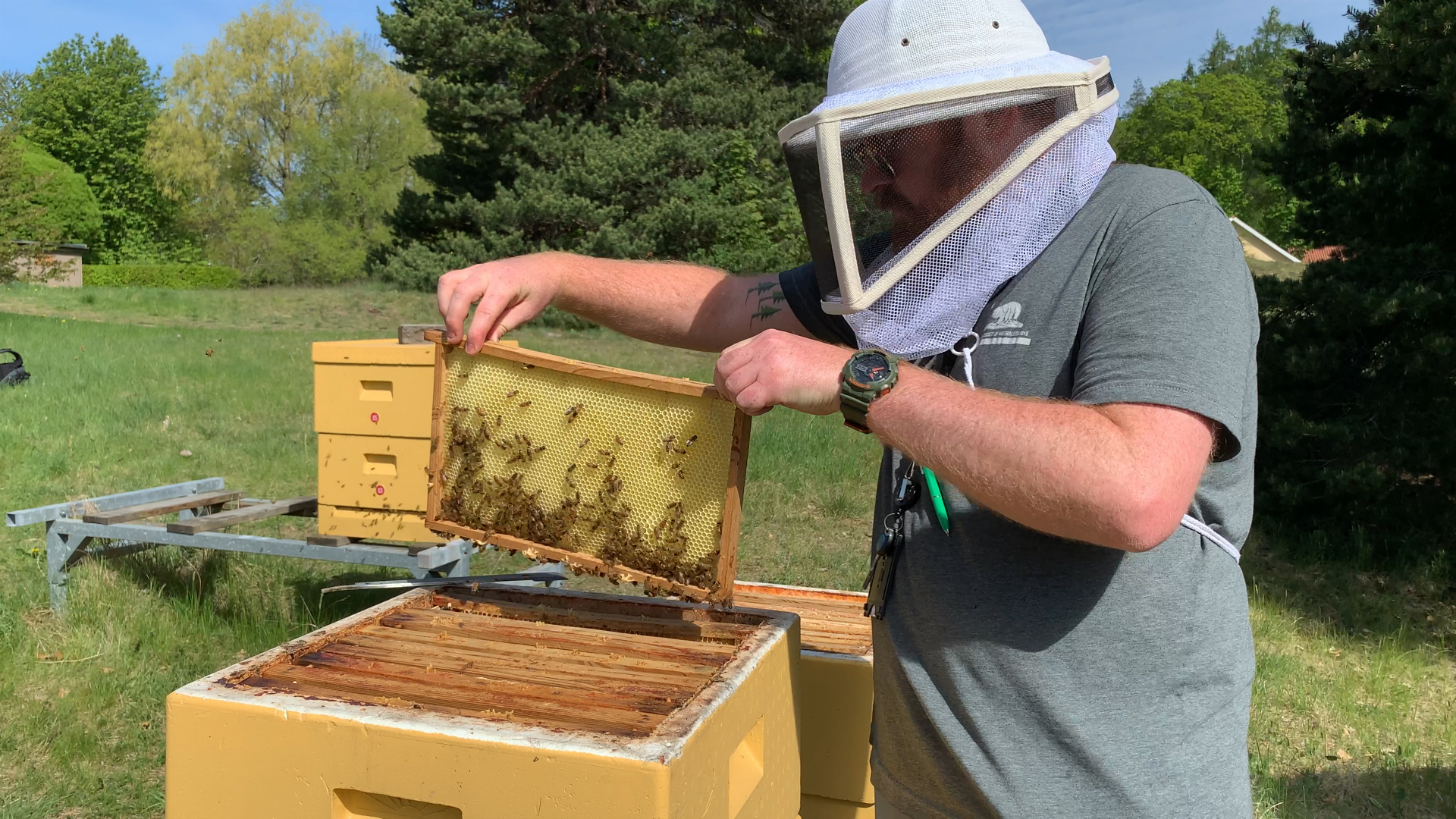
Collaboration
We facilitate scientific collaborations and serve as a bridge between science and practice, as well as between research and beekeeping.
Research
-
Varroa mite research
The research on varroa mites in our group focuses on understanding the ecology, evolution and adaptations between the honeybees, the varroa mites and the viruses vectored by the mite. -
Virus Research
We study the evolution, adaptation and ecology of bee viruses, as well as their effects on their hosts.